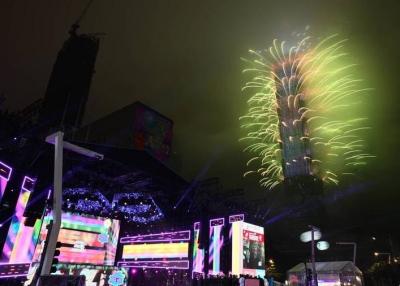The Legislative Yuan yesterday finalized the amount of funding for post-Morakot reconstruction at NT$120 billion (US$3.6 billion) and empowered the government to “forcibly relocate residents of disaster-prone areas after first seeking their consensus.”
The Chinese Nationalist Party (KMT)-dominated legislature voted 74 to 24 in favor of the KMT's motion to cap the Executive Yuan's special budget request at NT$120 billion, up from NT$100 billion as originally proposed by the Executive Yuan in the Post-Typhoon Morakot Reconstruction Special Act (莫拉克颱風災後重建特別條例).
The Democratic Progressive Party (DPP) had proposed setting the minimum at NT$200 billion, but the vote played out along party lines and was soundly defeated.

PHOTO: FANG PIN-CHAO, TAIPEI TIMES
The legislature also agreed to allow the central government to take out loans to raise the funds, but maintained that the central government should review its expenditure for the current fiscal year and use funds earmarked for “less urgent projects” on reconstruction work.
The legislature also approved a KMT motion to allow the central government and local governments to “forcibly relocate” residents living in “dangerous places” or “over-exploited areas” after consulting the residents but not reaching a consensus.
The motion stated that the government should respect the culture and lifestyle of residents of the areas during reconstruction.
Legislators passed the motion while a number of civil groups in the visitors' seats inside the legislative building chanted: “We are against pushing through the act hastily and forcibly relocating Aboriginal communities.”
Earlier on during the plenary session, DPP Legislator Chen Ying (陳瑩), a member of the Puyuma Tribe, knelt in front of legislators to show her opposition to authorizing the government to forcibly relocate Aboriginal communities in the disaster areas without their agreement.
Chen said numerous Aboriginal communities had broken apart after being relocated during the Japanese colonial era and former KMT administrations, adding that forcibly relocating them meant the extermination of Aboriginal communities.
But KMT Legislator Kung Wen-chi (孔文吉), an Atayal, said the KMT was also against forcibly relocating Aboriginal communities, adding that the KMT's motion would ensure that the government listened to residents and reached a consensus with them before deciding upon relocation.
The legislature also rejected a motion by the DPP that would require that the Cabinet spend NT$50 billion establishing a reconstruction fund for businesses in the disaster areas.
Meanwhile, more than 20 civic groups and Morakot survivors yesterday staged a demonstration for the third consecutive day outside the Legislative Yuan to protest the reconstruction bill.
Protestors sang the traditional Bunun song Kukumahal or “Go Home” as they walked toward the front gate of the Legislative Yuan.
“We're not against resettling victims in safe areas if the original sites of their communities are no longer suitable for habitiation, but we demand that the bill be more carefully reviewed and that public hearings be held to hear the voices of the victims,” long-time Aboriginal rights activist Omi Wilang said through a loudspeaker.
“A lot of evacuated survivors still don't know about the bill and what will happen to them as government officials and lawmakers are making the decisions for them,” he said.
The protesters were mainly upset over clauses in the bill that would grant the government the right to declare an area “dangerous” and force the residents to move.
Omi said arranging temporary resettlement for survivors was the priority.
“The transitional settlement period should last up to five or six years so that we can accurately determine whether it's possible for the victims to return to their home villages,” he said.
One survivor from the Rukai village of Sinhaocha (新好茶) (or Puhakele) in Pingtung County said he had no confidence in the plan to move villages.
“Thirty years ago, Rukai tribesmen followed government policy and left their homes in Kopachangan [舊好茶],” he said. “But look at what happened. Pulhakele is often flooded and was almost completely destroyed this time, while Kopachangan stands unaffected.”
Lee Li-ming (李黎明) of Nansalu Village (南沙魯), formerly known as Minzu Village (民族), in Kaohsiung County's Namasiya Township (那瑪夏), said Bunun culture is deeply connected to the land, and that cutting people off from their lands could destroy their culture.
“What you [the government] think is right is not always right in our eyes,” Lee said.
In related news, Premier Liu Chao-shiuan (劉兆玄) said yesterday the government will coordinate non-government organizations and businesses in post-Morakot reconstruction to ensure work is implemented thoroughly.
“The [government's] response to disaster relief must be quick, but reconstruction work should be done in a delicate way that fully respects the opinions of victims,” Liu said.
ADDITIONAL REPORTING BY SHIH HSIU-CHUAN
Also See: Finance ministry cancels Land Bank share scheme
Also See: Survivors concerned about bill

The Taipei MRT is open all night tonight following New Year’s Eve festivities, and is offering free rides from nearby Green Line stations. Taipei’s 2025 New Year’s Eve celebrations kick off at Taipei City Hall Square tonight, with performances from the boy band Energy, the South Korean girl group Apink, and singers Gigi Leung (梁詠琪) and Faith Yang (楊乃文). Taipei 101’s annual New Year’s firework display follows at midnight, themed around Taiwan’s Premier12 baseball championship. Estimates say there will be about 200,000 people in attendance, which is more than usual as this year’s celebrations overlap with A-mei’s (張惠妹) concert at Taipei Dome. There are

ANNOUNCEMENT: People who do not comply with the ban after a spoken warning would be reported to the police, the airport company said on Friday Taoyuan International Airport Corp on Friday announced that riding on vehicles, including scooter-suitcases (also known as “scootcases”), bicycles, scooters and skateboards, is prohibited in the airport’s terminals. Those using such vehicles should manually pull them or place them on luggage trolleys, the company said in a Facebook post. The ban intends to maintain order and protect travelers’ safety, as the airport often sees large crowds of people, it said, adding that it has stepped up publicity for the regulation, and those who do not comply after a spoken warning would be reported to the police. The company yesterday said that

NEW YEAR’S ADDRESS: ‘No matter what threats and challenges Taiwan faces, democracy is the only path,’ William Lai said, urging progress ‘without looking back’ President William Lai (賴清德) yesterday urged parties across the political divide to democratically resolve conflicts that have plagued domestic politics within Taiwan’s constitutional system. In his first New Year’s Day address since becoming president on May 20 last year, Lai touched on several issues, including economic and security challenges, but a key emphasis was on the partisan wrangling that has characterized his first seven months in office. Taiwan has transformed from authoritarianism into today’s democracy and that democracy is the future, Lai said. “No matter what threats and challenges Taiwan faces, democracy is the only path for Taiwan,” he said. “The only choice

CORRUPTION: Twelve other people were convicted on charges related to giving illegal benefits, forgery and money laundering, with sentences ranging from one to five years The Yilan District Court yesterday found Yilan County Commissioner Lin Zi-miao (林姿妙) guilty of corruption, sentencing her to 12 years and six months in prison. The Yilan District Prosecutors’ Office in 2022 indicted 10 government officials and five private individuals, including Lin, her daughter and a landowner. Lin was accused of giving illegal favors estimated to be worth NT$2.4 million (US$73,213) in exchange for using a property to conduct activities linked to the 2020 Chinese Nationalist Party (KMT) presidential and legislative election campaigns. Those favors included exempting some property and construction firms from land taxes and building code contraventions that would have required